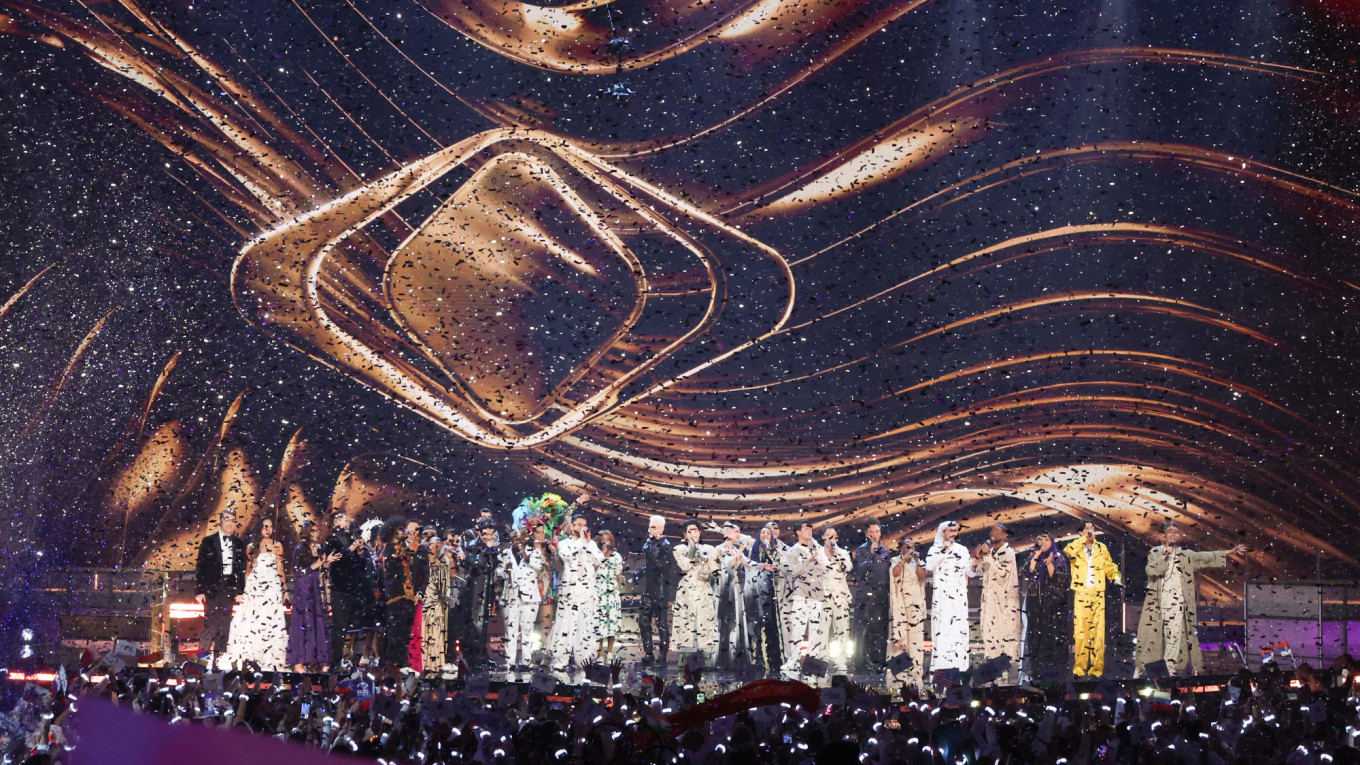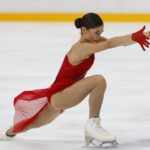It was an evening intended to demonstrate the Kremlin’s aspiration for cultural independence from the West, as well as to convey to Russian audiences that efforts to isolate their country following the invasion of Ukraine were unsuccessful.
However, the Intervision Song Contest — a revival of a Soviet-era competition in response to Russia’s exclusion from Eurovision — could not shake off the overshadowing presence of the well-known European event it aimed to differentiate itself from.
Showcasing 22 musical performances from BRICS, CIS, Latin American, and Middle Eastern nations at Live Arena near Moscow, Intervision was characterized by a series of awkward interactions, enforced solidarity, and many performances that didn’t quite resonate.
The event aired on state-owned Channel One and kicked off with an appearance by Dima Bilan, Russia’s sole Eurovision victor, alongside Polina Gagarina, who represented Russia in 2015.
What ensued was a surreal four-hour attempt by Russia to emulate Eurovision — at times resembling it almost exactly — interspersed with moments of conspicuous international camaraderie.
Using a blend of Russian, English, and Chinese, the hosts heralded a “historic” evening where all participants were brought together through the universal language of music.
Nevertheless, amidst the calls for unity and acclaim for each performance from the presenters, technical missteps and blunders plagued the event.
Two hosts stumbled over the pronunciations of “Kazakhstan” and “Kyrgyzstan,” there were delays in announcing the jury results, and an individual accidentally wandered into the frame of a Saudi judge during his voting segment.
Despite claims of billions of potential viewers, the official YouTube broadcast had only amassed 103,000 views by the time of reporting.
Although positioned as a “depoliticized” celebration of music, President Vladimir Putin featured in a pre-recorded video message.
Located in a windowless conference room flanked by two Russian flags, he praised international camaraderie, cultural values, diversity, and the prerogative of all nations to “develop freely” and “maintain their identities,” notably avoiding any mention of his military actions in Ukraine.
Shortly thereafter, the broadcast shifted to Foreign Minister Sergei Lavrov, who complimented the show, calling the idea for the contest “beautiful” and stressed the importance of including “BRICS countries and their allies.”
Following a lively presentation from Russia’s representative, the pro-war singer Shaman, he urged the jury not to factor his performance into the competition for the top award.
“I’m here for Russia, and Russia has already emerged victorious. We’ve triumphed because everyone is here as our guest,” he stated from the stage.
There were clear attempts to evoke national pride among the Russian viewers, with the eventual winner Duc Phuc claiming that the GUM department store featured the “best ice cream in the world,” while Qatar’s Dana Al Meer received a traditional Russian balalaika.
After the performance by Kyrgyzstan’s NOMAD Trio, the broadcast transitioned to a conversation with Uzbek artist Shokhrukh Ganiev and his mother. Ganiev mentioned that it was his first visit to Moscow, while his mother last visited in 1979, expressing excitement about showing her Red Square again and how he had “fallen in love” with it.
The hosts remarked on the “cool” aspect of Russian audiences now being able to attend concerts by Chinese artist Wang Xi without needing a visa, referencing a newly established agreement between Russia and China.
In what was arguably the most politically charged moment of the night, the organizers announced that the U.S. contestant, singer Vassy, originally from Australia, had withdrawn at the last minute due to what was described as “unprecedented political pressure from the Australian government.”
As the contest neared its conclusion, one of the hosts deemed Intervision “a new trend in the music world” and announced next year’s event would be hosted in Saudi Arabia.
When Duc Phuc from Vietnam was declared the winner, all 22 acts united for a performance of what appeared to be titled “A Million Voices.” Despite the ballad’s overly sentimental tone, reminiscent of “We Are the World,” it emerged as the most genuine moment of the evening.

